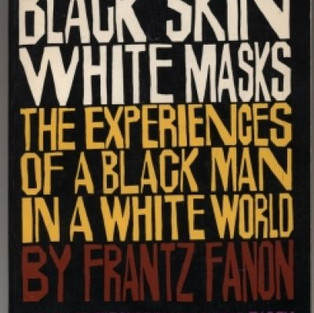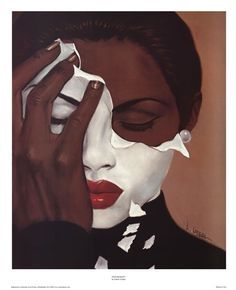Black Skin, White Mask
- Melissa Ngige

- Apr 8, 2020
- 2 min read
Updated: May 1, 2020
Having studied 'Emotion, media and culture' in second year, I was able to deepen my understanding on identity. Philosopher and cultural theorist Frans Fanon inspired me to explore my premise further.
I found it vital to include the concept of alienation which was explored through the lens of colonisation in Fanons narrative as it resonated with concepts in my footage. Within Fanon's narrative and the premise of identity, he explores the notion of colonisation. Through this, Fanon illustrates that the legacy of colonialism continues to determine the way that people experience reality in the present. In particular, he focuses on the experience of the diaspora and their feelings alienation. Fanon states that colonisation strips colonised people of their culture, identity, and frequently even a sense of their existence, leaving them in a state of overwhelming alienation. Through the concept of separation and alienation, Fanon expresses his struggle to feel a sense of home and belonging, pointing out how colonialism is to blame for his sense of isolation. Growing up in the French Caribbean colony of Martinique, Fanon was trained to identify with French culture and to reject the parts of him that make him "other". In essence, to dis-identify with his blackness and his history as a member of the African diaspora (Black Skin, White Masks Summary from LitCharts | The creators of SparkNotes, n.d.). Likewise, concerning the footage, I found it vital to include Fanon's narrative as the identity for black people has been stripped away as they have been forced to adopt new values. They are forced to assimilate and blend in as a means to fit in so they can be seen as equal, which was echoed by Mary (participant in my film) who states that "we need to assimilate to avoid stigmatisation". I thought that it would be instrumental in including this in my interactive website to serve as a form of public anthropology. This intended to illustrate the hardships that black people go through; how it is common for people of colour to rid of their authentic self as a means to assimilate. It shows how people have to alter their speech and exterior outlook to fit into today's scope, which rids their authentic self. For many people, this brings challenges when it comes to their identity. Which poses the question, "who is the real you?"
References
1.Fanon, F. (1967). Black skin, White masks. Groove Press.
2. LitCharts. n.d. Black Skin, White Masks Summary From Litcharts | The Creators Of Sparknotes. [online] Available at: <https://www.litcharts.com/lit/black-skin-white-masks/summary> [Accessed 13 March 2020].
3.Blackartdepot.com. n.d.Laurie Cooper Art Gallery | The Black Art Depot. [online] Available at: <https://www.blackartdepot.com/collections/artist-laurie-cooper-art-gallery> [Accessed 27 April 2020].









Comments